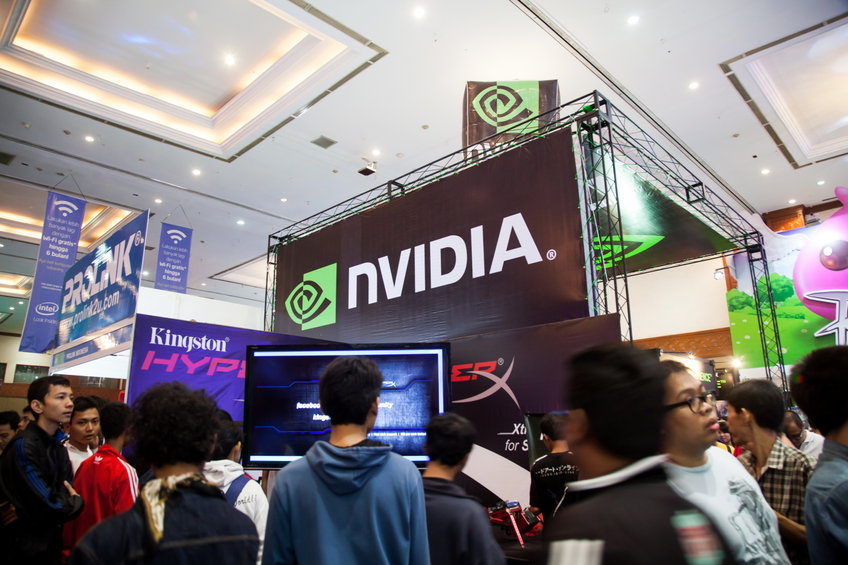Nvidia ((NASDAQ: NVDA) shares have tumbled in early Monday trading, extending the stock’s one-month decline to around 23%.
This downturn comes amid a major pullback in global tech stocks and reports of a delay in the delivery of Nvidia’s newly designed AI chips known as Blackwell.
Source: TradingView
Nvidia’s Blackwell chip delay impacts stock performance
Nvidia unveiled the Blackwell line of processors earlier this year, boasting that these flagship chips could perform artificial intelligence tasks at more than twice the speed of its current Hopper chips.
These new chips also promised to use less energy and provide more bespoke flexibility, positioning them as a significant upgrade over the existing technology.
Despite the promising capabilities of Blackwell, a report from tech-focused news outlet The Information indicated that Nvidia had informed key clients, including Microsoft and an unnamed cloud service provider, about a design flaw in the Blackwell architecture.
This flaw could potentially delay production ramp-up and delivery dates by around three months.
Hyperscalers’ investment and Nvidia’s production plans
Hyperscalers, which are major providers of massive data centres and cloud services, are projected to spend around $500 billion over the next two years building out their infrastructure, according to estimates from Barclays.
Nvidia had planned to ramp up production of the Blackwell processors over the second half of this year, continuing to sell its H100 Hopper series to major clients such as Microsoft, Meta Platforms, and Google parent Alphabet.
Analysts had expected Blackwell to start generating revenue for Nvidia in the third quarter, with global customer data centres receiving the chips by the final three months of the year.
Nvidia’s commanding market share and high demand for AI technology were predicted to drive the group’s data centre revenue to as high as $150 billion next year, largely powered by the Blackwell launch.
Nvidia’s strategic outlook amid production challenges
Despite the reported delay, Nvidia’s strategic outlook remains focused on long-term growth and market leadership.
Jensen Huang, co-founder and CEO of Nvidia, emphasized the company’s commitment to upgrading its AI accelerators annually.
During an event in Taipei, Huang announced plans for a Blackwell Ultra chip for 2025 and a next-generation platform called Rubin for 2026.
Benchmark analyst Cody Acree noted that Nvidia aims to have Blackwell in full production by the second quarter, with global availability expected later this year.
Acree highlighted that demand for the H200 and Blackwell chips is well ahead of supply, and the company anticipates that this demand may exceed supply well into the next year.
Analyst perspectives on Nvidia’s near-term performance
Goldman Sachs analyst Toshiya Hari reiterated his conviction-buy rating and $135 price target on Nvidia stock, expressing confidence in Blackwell’s role in Nvidia’s growth.
Hari acknowledged that the reported delay could cause near-term volatility, potentially leading to muted growth in the October and January quarters.
However, he expects minimal impact on Nvidia’s earnings for the calendar year 2025 and believes the company’s long-term competitive position will remain strong.
Nvidia, which is set to report its fiscal third-quarter earnings later this month, had previously assured investors that current-quarter revenue would rise to around $28 billion.
This stronger-than-expected revenue forecast had helped assuage concerns about an “air pocket” caused by the Blackwell launch.
Market reactions and Nvidia’s stock trajectory
Nvidia shares were marked 9.5% lower in premarket trading, indicating a Monday opening bell price of $97.08 each.
If this decline holds through the trading session, it would push Nvidia’s stock into bear market territory, typically defined as a 20% decline from a stock’s recent peak.
Nvidia shares had closed at an all-time high of $135.58 each on June 18.
The reported delay in Blackwell production has undoubtedly contributed to the recent decline in Nvidia’s stock.
Some investors had expressed concerns that customers might cancel orders for the older H100 chips and wait for the newer Blackwell processors to become available later in the year.
However, Nvidia’s continued focus on innovation and its strong position in the AI and data centre markets suggest that the company remains well-positioned for future growth.
Nvidia’s long-term prospects and industry dynamics
As the tech industry continues to evolve, Nvidia’s role in shaping the future of AI and data-center technology remains critical.
The company’s ability to navigate production challenges and maintain its market leadership will be key to its long-term success.
The anticipated investments by hyper scalers and the growing demand for advanced AI processors underscore the significant opportunities in this sector.
Despite the near-term challenges posed by the reported delay in Blackwell production, Nvidia’s strategic focus on innovation and its robust market position suggest a positive long-term outlook.
As the company addresses the reported design flaw and ramps up production, it is likely to continue driving advancements in AI technology and capitalizing on the growing demand for high-performance processors.
Nvidia’s recent stock decline reflects both broader market trends and specific challenges related to the production of its new Blackwell AI chips.
While the reported delay has raised concerns among investors, the company’s strategic focus on innovation and its strong market position provides a solid foundation for future growth.
As Nvidia continues to navigate these challenges and capitalize on opportunities in the AI and data-centre markets, it remains a key player in the evolving tech landscape.
The post Market crash: Nvidia stock falls amid tech pullback appeared first on Invezz
